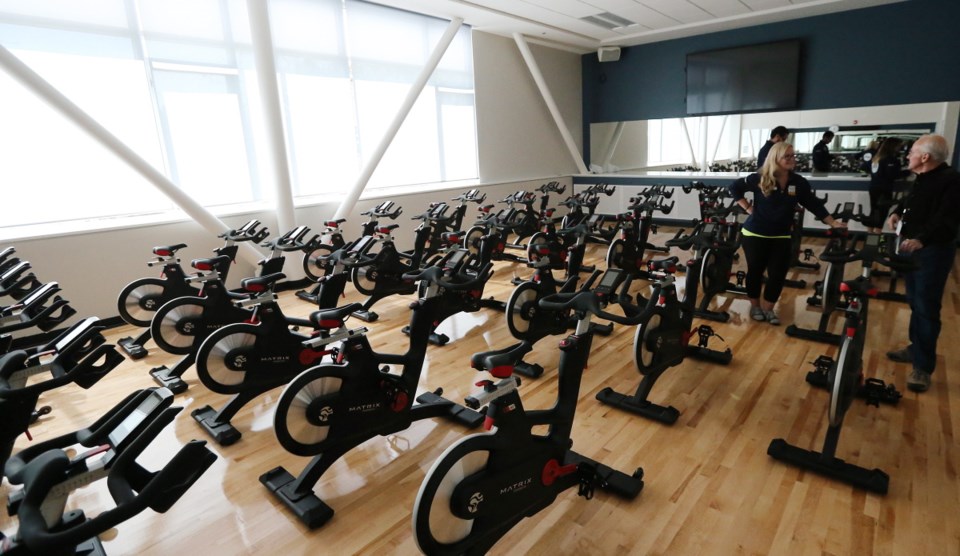The ads ran constantly, and teasingly, during Canadian TV coverage of the 2018 Pyeongchang Winter Olympics and asked: Do you have what it takes to be an Olympian? Are you that athletic gem yet to be unearthed?
The chance to live out dreams comes Sunday from 9 a.m. to noon when RBC Training Ground comes to the CARSA facility on the University of Victoria campus.
It’s an open and no-cost, all-comers tryout in which strength, speed and endurance will be measured by 14 Olympic sport national governing bodies.
People between the ages of 14 and 25, wondering if they are good enough to become Olympians in an array of sports, can register in advance at rbctrainingground.ca or at the door.
Just over a hundred Island hopefuls attended last year’s combine at UVic, of whom 16 were invited to engage in additional evaluations at the regional final in Richmond. Of those, three athletes from last year’s Island tryout earned Future Olympian funding from the RBC-sponsored program, including Avalon Wasteneys and Alec Stapff for rowing.
Even if someone is already a good athlete, he or she could be rerouted to a sport which they had not previously considered, such as 15-year-old Island softball player Sierra Gillis, who was directed to rugby after the 2017 training ground trials at CARSA and is now receiving Future Olympian funding in sevens.
A total of 2,100 aspirants attended RBC training camp tryouts in 2017, of whom just over 300 were invited to regional trials for further evaluation, with 30 of them selected to receive ongoing financial support and to be put into an Olympic-sport development stream.
One of the key measures is described as “anthropometric suitability,” which considers body type and things such as arm span. Overall, it’s about measuring speed, strength, power and endurance in the hopes of being discovered by scouts and routed toward an Olympic sport.
Olympians Jamie Broder from beach volleyball and Laura Brown from cycling will be on hand Sunday at UVic to assist in the tryouts.
In the past, several good athletes have been redirected to sports they never previously tried.
Broder is a case study in how to settle on your right sport. She was a track and field and soccer standout at Claremont Secondary. But it was another sport that piqued her interest at Claremont, and which was better suited for her body type and skill sets, and which carried her to the top-16 at the 2016 Rio Summer Olympics in beach volleyball.
“There are so many key decisions you make in your life. And you ask yourself later: What if I didn’t make that decision and made the other, what would have happened?” Broder said, in a pre-Olympics interview with the Times Colonist.
On Sunday at UVic, some would-be Olympians might get their what-might-have-been questions answered.
On hand will be officials, coaches and scouts from Rowing Canada, Rugby Canada, Athletics Canada, Cycling Canada — all of which have national training centres in Greater Victoria — and also Water Polo Canada, Wrestling Canada, Judo Canada, Canada Basketball, Canoe-Kayak Canada, Snowboard Canada, Cross-Country Ski Canada, Speed Skating Canada, Bobsleigh-Skeleton Canada, and Freestyle Canada.



